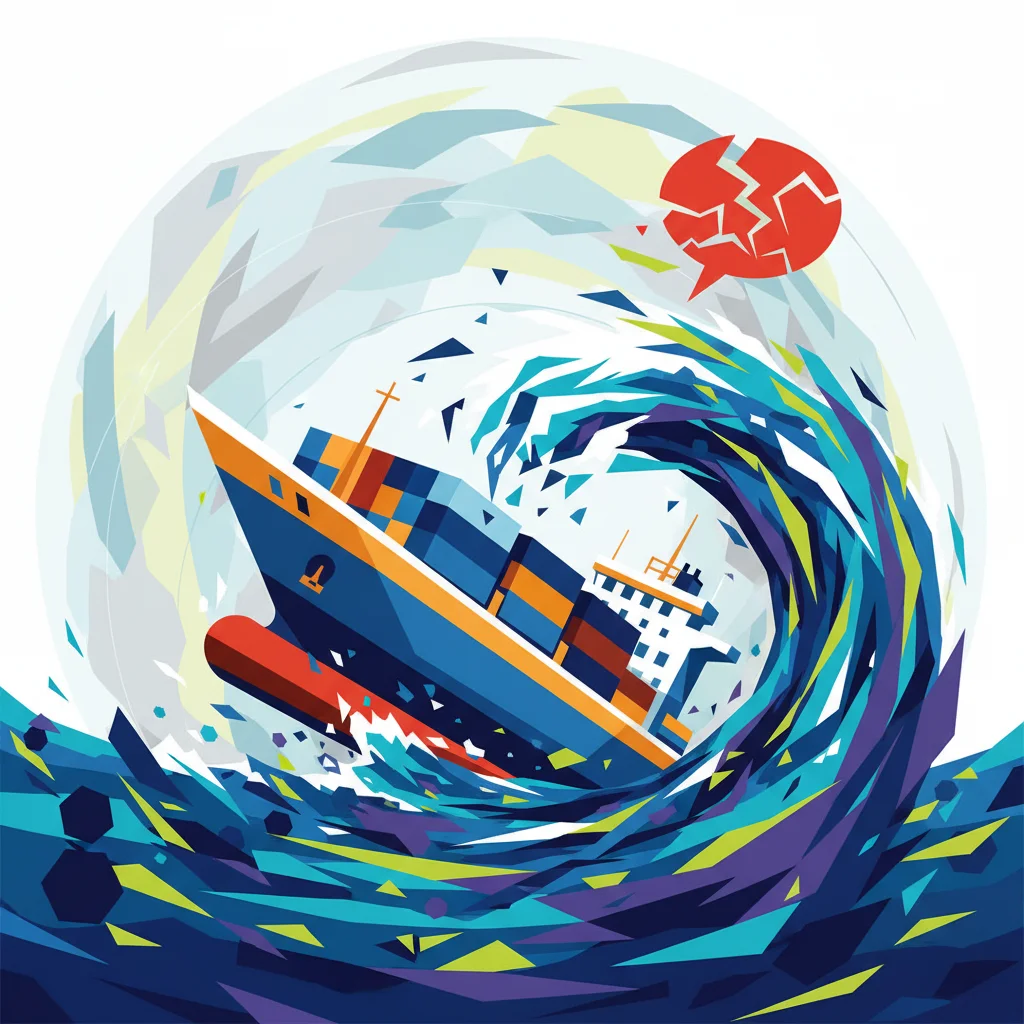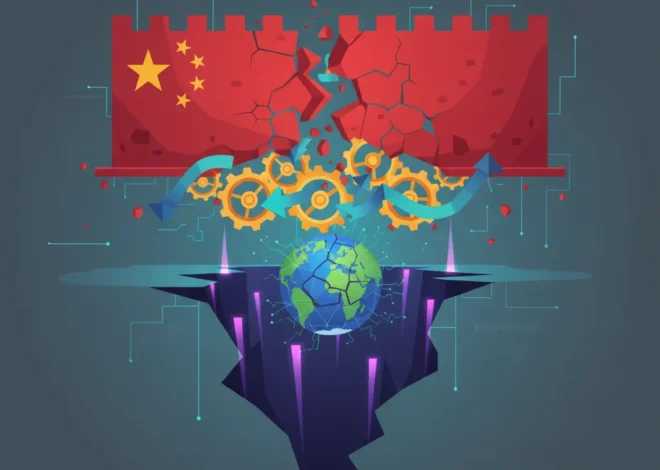
Political Storms on the High Seas: How a Single Comment Capsized a Landmark Global Shipping Deal
The global economy runs on an invisible engine: the maritime shipping industry. Every day, colossal vessels traverse our oceans, carrying over 80% of the world’s traded goods by volume. This relentless flow of commerce is the lifeblood of modern civilization, but it comes at a steep environmental cost. The shipping industry is a carbon behemoth, responsible for nearly 3% of global greenhouse gas emissions. To put that in perspective, if global shipping were a country, it would be the world’s sixth-largest polluter, ahead of Germany.
For years, the International Maritime Organization (IMO), the United Nations’ agency responsible for regulating shipping, has been painstakingly negotiating a global strategy to decarbonize this critical sector. The goal was a landmark agreement—a unified, global framework to steer the industry toward a net-zero future. This wasn’t just an environmental treaty; it was a multi-trillion-dollar roadmap for investment, innovation, and the future of global trade. But in a stunning turn of events, this carefully constructed accord is now in tatters. The reason? A sharp political intervention from the United States, with former President Trump reportedly intervening to label the deal a “green scam”.
This development is far more than a climate policy setback. It’s a geopolitical earthquake with aftershocks that will ripple through the global economy, rattle the stock market, and force a profound reassessment of risk for investors, financiers, and business leaders worldwide. The capsizing of this deal reveals the treacherous waters where climate ambition, international politics, and hard-nosed economics collide.
The Multi-Trillion-Dollar Challenge: Decarbonizing Global Trade
To grasp the magnitude of what has been lost, it’s essential to understand the scale of the challenge the IMO deal was meant to address. The transition to green shipping is one of the most complex and capital-intensive industrial pivots in human history. The global fleet of over 50,000 commercial ships primarily runs on heavy, polluting bunker fuel. Shifting to cleaner alternatives like green ammonia, methanol, or hydrogen requires a complete overhaul of propulsion systems, fuel infrastructure, and port facilities.
Estimates for the total investment needed range from $1 trillion to as high as $3.7 trillion by 2050. This colossal sum represents a monumental opportunity for finance and investing. It promised to unleash a wave of innovation in green bonds, sustainable infrastructure funds, and new asset classes tied to the maritime energy transition. The banking sector was gearing up to underwrite this transformation, and the world of financial technology was poised to create new platforms for carbon accounting, emissions trading, and supply chain verification—potentially leveraging technologies like blockchain for immutable transparency.
The IMO’s proposed framework was the linchpin for unlocking this capital. It was designed to provide the regulatory certainty that long-term investors crave. By setting clear, internationally-agreed-upon targets and timelines, the deal would have de-risked massive investments in new ships and technologies. Without it, the market is left with a fog of uncertainty.
The Great Philanthropic Pivot: Why a Billionaire's Foundation Just Pulled the Plug on the U.S.
A Wreckage of Certainty: The Immediate Economic Fallout
The abrupt scuttling of the agreement sends a chilling message to the global markets. Political risk, once a background consideration in ESG (Environmental, Social, and Governance) investing, has now taken center stage. For companies and investors who had already committed billions based on the expected transition, the landscape has changed overnight.
Here’s a breakdown of the potential impacts across key sectors:
| Sector | Potential Impact of the Deal’s Collapse |
|---|---|
| Shipping & Logistics | A fragmented regulatory landscape emerges. The EU may proceed with its own strict Emissions Trading System (ETS), creating a costly patchwork of rules. Companies with older, less efficient fleets get a temporary reprieve, while those who invested heavily in green technology may see their competitive advantage erode. |
| Energy & Fuel Production | Uncertainty stalls investment in the production of alternative marine fuels like green ammonia and methanol. Without a clear global demand signal, energy giants will be hesitant to commit the massive capital required for new production facilities. |
| Investing & Stock Market | Increased volatility for shipping stocks and related industries. Investors must now price in a much higher degree of political and regulatory risk. ESG funds focused on industrial decarbonization face a major setback. |
| Banking & Finance | Financial institutions that were developing specialized “green shipping” loan portfolios and sustainability-linked bonds must now re-evaluate their risk models. The pipeline for these financial products could shrink dramatically. |
The core issue is the destruction of a predictable, long-term framework. The global economy thrives on stability. When rules can be rewritten by a single political statement, it paralyzes capital allocation and stifles the very innovation needed to solve our biggest challenges.
The Ripple Effect: From Global Supply Chains to Fintech Innovation
The consequences of this collapse extend far beyond the boardrooms of shipping magnates and bankers. They will be felt across the entire global economic ecosystem.
Supply Chain Chaos
For businesses that rely on international trade, a fragmented regulatory environment is a nightmare. Imagine a scenario where a ship leaving Asia for Europe must comply with one set of emissions standards, purchase carbon credits under another system, and then potentially switch fuels or pay levies to enter North American waters. This operational complexity translates directly into higher shipping costs, which will inevitably be passed down to consumers, potentially fueling inflation. This is a direct threat to the efficiency of the global supply chains we all depend on.
A Brake on Financial Technology
The green transition was set to be a major catalyst for innovation in fintech. Companies were developing sophisticated software to measure, report, and verify (MRV) emissions for every container on every ship. There was immense potential for tokenized carbon credits and blockchain-based registries to ensure transparency and prevent double-counting in a global carbon market for shipping. This regulatory vacuum puts many of these ventures in limbo. Without a unified market to serve, the development of this critical financial technology will slow, fragment, or stall altogether.
The Farage Threat Verdict: Why Political Risk is Now a Core Metric for Every Investor's Portfolio
Navigating the Murky Waters Ahead
So where does the world go from here? The path forward is uncertain and fraught with risk. Several scenarios could play out:
- The Rise of Regional Blocs: In the absence of a global deal, powerful economic blocs like the European Union will likely forge ahead with their own stringent regulations. This creates a “club” of green corridors but also risks sparking trade disputes with nations that don’t comply, further fracturing the global economy.
- A Watered-Down Compromise: Negotiators could return to the table to salvage a much weaker, less ambitious version of the deal. This might provide some semblance of global cooperation but would fall far short of the emissions cuts required by climate science, as outlined by bodies like the Intergovernmental Panel on Climate Change (IPCC).
- Industry Paralysis: Faced with conflicting signals and immense uncertainty, many shipping companies and their financiers may simply choose to wait and see. They will delay major investment decisions, extending the life of polluting assets and locking in emissions for decades to come.
For those navigating this new reality, the strategy must shift from one of compliance to one of resilience. Investors in the stock market need to look beyond a company’s stated green ambitions and scrutinize its ability to adapt to a volatile and fragmented regulatory world. Business leaders must build more flexible and resilient supply chains that can absorb the shock of sudden policy shifts and rising transport costs.
The collapse of the global shipping deal is a sobering reminder that the path to a sustainable future is not a straight line. It is a treacherous voyage through the crosscurrents of politics, finance, and national interest. While the “green scam” label may have been a short, sharp political blow, its impact will be a long, slow-moving wave that reshapes the landscape of global trade and investment for years to come. The engine of the world economy has been thrown into uncertainty, and we will all feel the turbulence.


